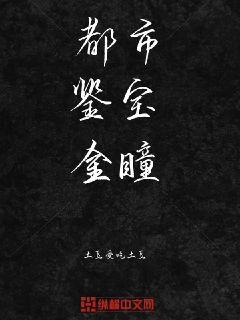
Certainly! Here's the structured article on "Optimizing Training Performance through Nutrition and Diet for Professional Athletes":
**Abstract:**
Professional athletes rely heavily on nutrition and diet to enhance their training performance. This article explores key factors that optimize their performance through dietary strategies. It examines the role of macronutrients, micronutrients, hydration, and timing of meals in maximizing athletic potential. By understanding and implementing these factors, athletes can achieve peak performance and maintain optimal health.
---
**1、Macronutrients:**
Macronutrients play a fundamental role in the diet of professional athletes, influencing energy levels, muscle recovery, and overall performance.
Athletes typically require a balanced intake of carbohydrates, proteins, and fats to meet their energy demands and support muscle repair.
Carbohydrates serve as a primary fuel source, especially during high-intensity activities, emphasizing the importance of adequate intake and timing to sustain performance.
1、Proteins:
Proteins are essential for muscle repair and growth, with athletes needing slightly higher amounts to recover effectively from training sessions.
Timing protein consumption around workouts is crucial for maximizing muscle synthesis and adaptation to exercise-induced stress.
A variety of protein sources, including lean meats, dairy, and plant-based options, offer athletes flexibility in meeting their nutritional needs.
2、Fats:
Healthy fats contribute to sustained energy levels and support overall health in athletes, emphasizing sources like nuts, seeds, and fatty fish.
A balanced intake of omega-3 and omega-6 fatty acids aids in reducing inflammation and optimizing recovery post-training.
Adjusting fat intake based on training intensity and individual metabolic needs helps athletes maintain optimal body composition and performance.
3、Carbohydrates:
Carbohydrates are critical for replenishing glycogen stores and providing quick energy during intense exercise sessions.
Choosing complex carbohydrates such as whole grains and vegetables ensures sustained energy release and supports prolonged athletic performance.
Strategic carb-loading before competitions or high-demand periods helps athletes maximize glycogen storage and enhance endurance.
---
**2、Micronutrients:**
Beyond macronutrients, micronutrients are essential for maintaining overall health, supporting immune function, and optimizing athletic performance.
Athletes require adequate intake of vitamins and minerals to support physiological processes, including bone health, oxygen transport, and muscle contraction.
Key micronutrients such as iron, calcium, vitamin D, and antioxidants play crucial roles in reducing the risk of injury and illness among athletes.
1、Iron and Calcium:
Iron is vital for oxygen transport and energy production, particularly significant for endurance athletes to prevent fatigue and optimize performance.
Calcium supports bone health and muscle function, essential for maintaining skeletal integrity and reducing the risk of stress fractures.
Ensuring sufficient intake of these minerals through diet and, if necessary, supplementation helps athletes meet their unique nutritional demands.
2、Vitamins and Antioxidants:
Vitamins such as vitamin D, C, and E contribute to immune function and recovery, aiding in the repair of muscle tissue and reducing oxidative stress.
Antioxidants from fruits, vegetables, and nuts help mitigate exercise-induced inflammation and support cellular repair processes post-exercise.
Strategies to incorporate a diverse range of micronutrient-rich foods into an athlete’s diet promote overall health and optimize training adaptations.
3、Hydration:
Hydration is critical for maintaining performance and preventing dehydration-related complications during training and competition.
Athletes should monitor fluid intake to replace losses through sweat, adjusting consumption based on environmental conditions and individual sweat rates.
Optimal hydration supports thermoregulation, nutrient transport, and cognitive function, enhancing overall athletic performance and recovery.
---
**3、Timing of Meals:**
The timing of meals and nutrient intake around training sessions is crucial for optimizing energy availability, promoting recovery, and supporting adaptation to exercise stress.
Strategic meal timing helps athletes maximize glycogen storage, enhance muscle protein synthesis, and minimize muscle breakdown.
Pre-exercise nutrition focuses on providing adequate carbohydrates for fuel and minimizing gastrointestinal distress during workouts.
1、Pre-Exercise Nutrition:
Consuming a balanced meal or snack containing carbohydrates and a moderate amount of protein 2-4 hours before exercise provides sustained energy and supports muscle function.
Hydration before exercise ensures adequate fluid balance and enhances thermoregulation during physical exertion, optimizing performance and reducing the risk of dehydration.
2、Post-Exercise Recovery:
Immediately following exercise, consuming a combination of carbohydrates and proteins within the first 30 minutes to 2 hours supports glycogen replenishment and muscle repair.
Timing protein intake post-exercise stimulates muscle protein synthesis, facilitating recovery and adaptation to training-induced stress.
Incorporating micronutrients and fluids into post-exercise meals aids in rehydration, replenishment of electrolytes, and overall recovery.
3、Nutrient Timing Strategies:
Strategically timing meals and snacks throughout the day maintains stable blood sugar levels and sustains energy for consistent training performance.
Adjusting nutrient intake based on training volume and intensity helps athletes meet their energy demands and achieve optimal nutrient timing for enhanced performance.
Individualized nutrition plans tailored to training schedules and performance goals optimize nutrient timing strategies, supporting long-term athletic success.
---
**4、Conclusion:**
Optimizing training performance through nutrition and diet involves a comprehensive approach focusing on macronutrients, micronutrients, hydration, and meal timing.
By understanding the role of each component and implementing evidence-based strategies, athletes can enhance performance, support recovery, and maintain overall health.
Continued research and personalized nutrition plans are essential to meet the unique needs of professional athletes and maximize their athletic potential.
Overall, integrating these key factors into a structured nutrition plan empowers athletes to achieve peak performance and excel in their respective sports.
### 文章摘要
本文探讨了川籍球员在现役中的光辉表现和职业生涯统计。从多个角度详细分析了他们在比赛中的突出表现、个人荣誉的累积、团队贡献以及对地方足球发展的影响。通过深入挖掘不同球员的故事和数据,展示了他们如何在职业生涯中脱颖而出,成为地方和全国足球界的重要人物。
### 1、比赛表现与技术风采
比赛表现与技术风采
川籍球员在职业赛场上展现出的技术风采和比赛表现,是他们被球迷和评论界广泛赞誉的关键。从技战术的角度分析,他们在场上如何运用个人技术为球队创造机会,以及在关键时刻展现出的冷静和果断。
不仅如此,我们还将详细探讨几位代表性球员的典型比赛,分析他们在攻防转换、传球组织和射门精度等方面的表现,以及这些表现如何影响球队的整体战绩。
进一步分析每位球员在关键比赛中的数据和关键表现,揭示他们如何在场上展现出独特的技术风采和领导力。
### 2、个人荣誉与成就积累
个人荣誉与成就积累
川籍球员在职业生涯中积累了哪些个人荣誉和奖项?他们如何通过稳定的表现和出色的统计数据,在各大联赛和国际比赛中脱颖而出?
本部分将详细分析几位球员的个人荣誉,包括获得的最佳射手奖、最有价值球员称号以及入选的重要荣誉榜单。通过这些数据和荣誉,我们可以看到他们在职业生涯中的成就和地位。
此外,还将探讨这些荣誉如何影响球员的职业发展和个人形象,以及他们如何利用这些荣誉激励自己和队友。
### 3、团队贡献与领导力展示
团队贡献与领导力展示
除了个人表现外,川籍球员如何通过团队贡献和领导力展示自己的价值?他们在球队中扮演的角色如何帮助团队取得胜利,并推动球队走向成功?
本节将深入分析几位球员在球队中的领导作用和团队精神,探讨他们如何通过助攻、防守和战术执行为球队做出贡献。
此外,我们还将探讨他们在关键比赛和季后赛中的表现,以及他们如何在困难时期挺身而出,带领球队走向胜利。
### 4、地方足球发展的推动力
地方足球发展的推动力
川籍球员不仅在职业赛场上取得了显著成就,他们还如何通过自身的成功推动地方足球的发展?他们的表现如何影响当地年轻球员的成长和训练体系的建设?
本节将分析几位代表性球员在地方足球发展中的作用,探讨他们如何通过参与青训项目、慈善活动和地方社区活动,影响和激励更多年轻人参与足球运动。
最后,我们将总结这些球员在现役中的光辉表现和职业生涯统计,以及他们如何成为地方足球的象征和榜样。
### 总结:
川籍球员在现役中的光辉表现和职业生涯统计展示了他们在职业足球界的重要地位和影响力。通过技术风采的展示、个人荣誉的累积、团队贡献的体现以及对地方足球发展的推动,他们不仅提升了自己的职业形象,也为地方足球的发展贡献了力量。随着他们继续在赛场上取得成就,他们的故事将继续激励更多年轻人追求足球梦想。
川籍球员的成功不仅仅是个人的荣耀,更是整个地方足球发展的重要组成部分。
### 文章摘要
瑞土球员,位于多元文化交汇的地带,不仅是足球的殿堂,更是文化融合的象征。这里的足球场上汇聚了各国球员,通过足球这一全球语言,展现了多样性的美妙和文化的包容。本文将从历史渊源、球员多样性、比赛文化和社会影响四个方面深入探讨瑞土球员如何成为一个多元文化融合的足球天堂。
### 1、历史渊源
瑞土球员的建立背景
历史上的重要转折点
球员文化演变与影响
### 2、球员多样性
来自全球的球员群体
文化多样性如何体现在球员身上
语言和传播的交融
### 3、比赛文化
独特的比赛氛围与体验
赛事组织的特点与创新
球迷文化的多样性
### 4、社会影响
足球对社会融合的积极作用
多元文化如何在社区中生根发芽
瑞土球员的未来发展与展望
### 总结:
瑞土球员不仅是一个足球的殿堂,更是一个多元文化融合的典范。通过足球的力量,不同文化在这里交汇融合,展现了和谐共生的美好景象。未来,瑞土球员将继续在全球范围内发挥其积极作用,促进文化多样性的进一步发展。
在全球化和多元文化交融的今天,瑞土球员作为一个多元文化融合的足球天堂,为我们展示了一个更加包容和充满希望的未来。